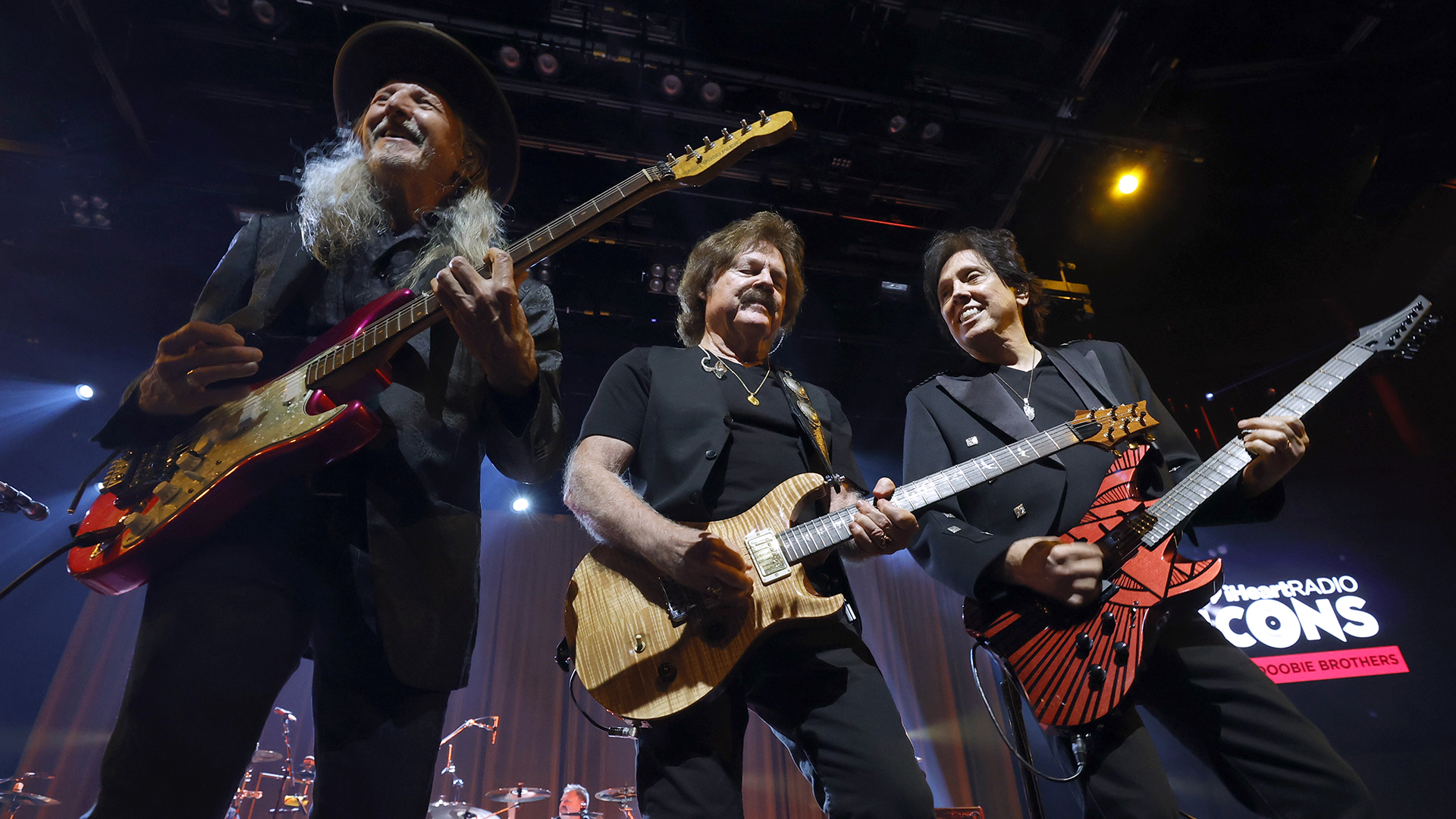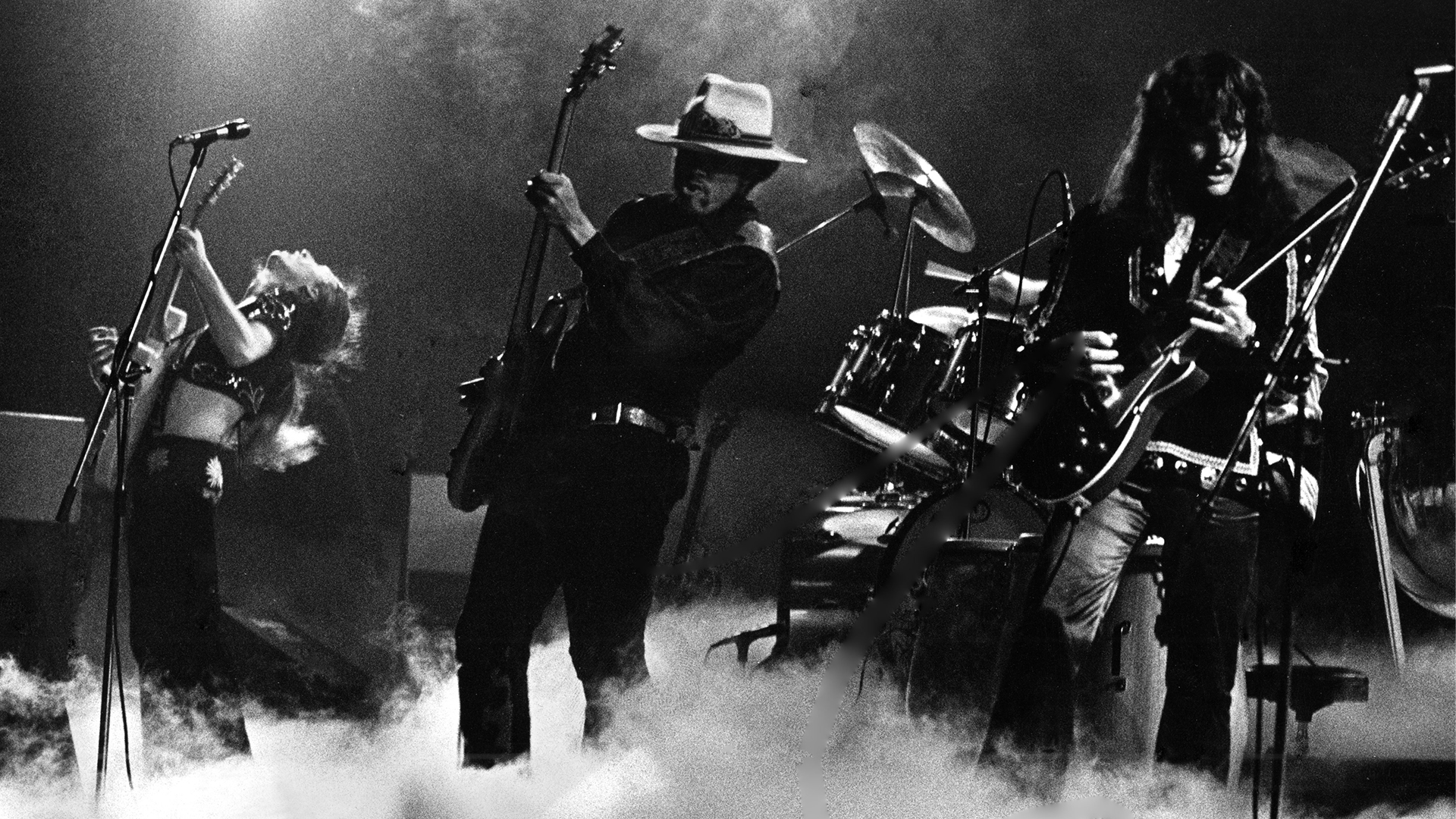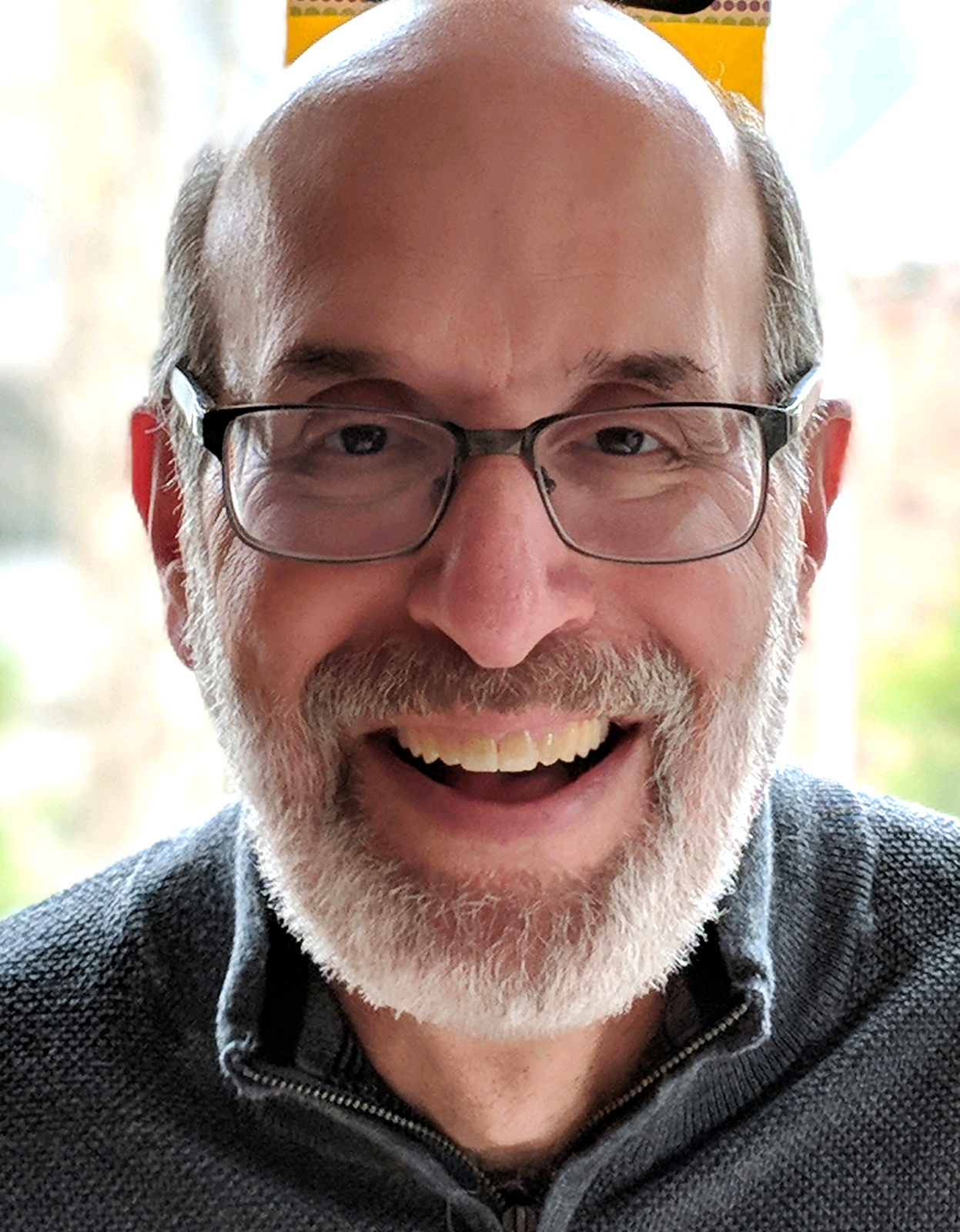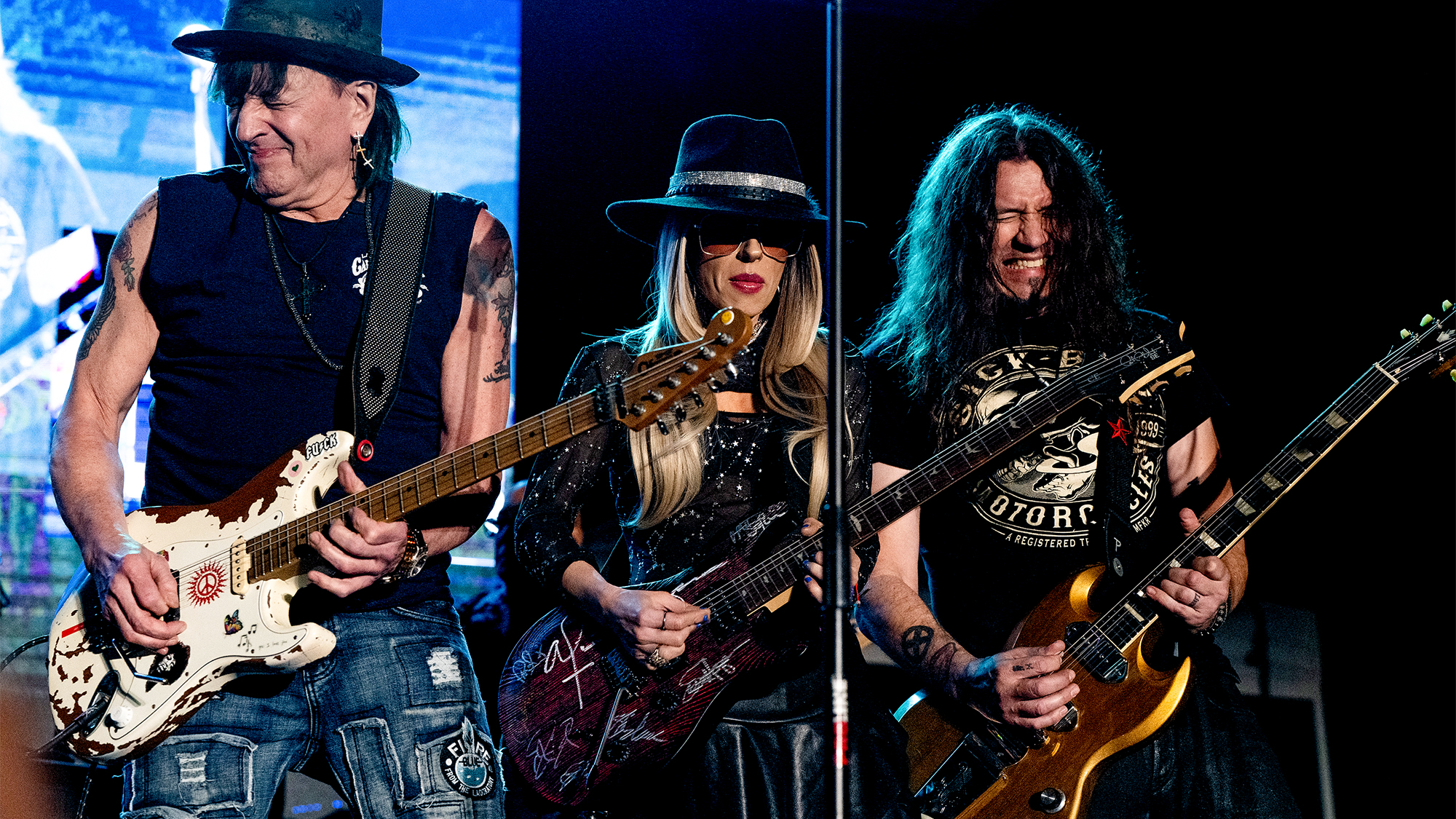"I said, ‘It’s just a guitar riff.’ He goes, ‘You should write a song with that. It’s catchy.’” Tossed off as a B-side, this 1974 classic-rock gem became a number-one hit
"Black Water" would be the first of two chart-toppers the Doobie Brothers released

The first two singles from the Doobie Brothers’ fourth album failed to catch fire. So it was a surprise when “Black Water,” the third offering from 1974’s What Were Once Vices Are Now Habits, went to number one on the Billboard Hot 100.
Originally issue as the B side to one of those failed singles — “Another Park, Another Sunday” — “Black Water” was an unusual cut from a group known for rockers like “Listen to the Music,” “Long Train Runnin’” and “China Grove.” Its easygoing cadence, back-porch acoustic guitar fingerpicking and images of Mississippi moons, catfish and riverboats came out of left field.
Composed by band co-founder Patrick Simmons, “Black Water” sprang from
a riff. “Most of our tunes begin with a riff, if they’re from the guitar players,” Simmons says. “That riff is the first thing I had when I was living in the Santa Cruz mountains, between Los Gatos and Santa Cruz. I played it for a long time, thinking, Someday I’ll do something with this.
“Then one day in the studio, in between takes for something else, I started playing it. The mic was still live, and our producer, Ted Templeman, heard it. He pressed the talkback and asked, ‘What is that?’ I said, ‘It’s just a riff I have.’ He goes, ‘You should write a song with that. It’s catchy.’”
Shortly afterward, during a week’s worth of shows in New Orleans, Simmons took Templeman’s advice to heart. “I thought, This is a really good place. I should try to come up with something,” he explains. “I was taking the trolley that goes up by [Tulane] university to a laundromat to do some laundry.
"It was a sunny day, but when I got on the trolley, it started to rain. And yet it was still sunny. And I’m thinking, I gotta write this down: ‘If it rains I don’t care / Makes no difference to me / Just take that streetcar that’s going uptown.’ That became the second verse of the song.
“Then, as I’m doing my laundry, I’m thinking, What else goes with that? I’d read Huckleberry Finn, Tom Sawyer… So I started thinking, Well, there’s the Mississippi River, and they call that Black Water. I started jotting down other things — ‘built me a raft / she’s ready for floatin’.’ And then I thought about the Mississippi moon in the sky being reflected on the river. That’s the vision I was having.
All the latest guitar news, interviews, lessons, reviews, deals and more, direct to your inbox!
“And then I remembered one of the first times I was ever in the French Quarter, I went into a bar and there was a Dixieland band playing, and I flipped. I thought, I’m having a drink at a bar in New Orleans and a Dixieland band’s playing! So I put that in the song — ‘I wanna hear some funky Dixieland.’ That’s how that came about.”

Tracking the song was fairly easy, thanks to its spare arrangement, but from the start, Simmons had his heart set on adding some New Orleans flavor to it. “I originally thought we would add some Dixieland elements,” he says, “a clarinet and a trombone, a trumpet or something.” It was Templeman’s idea to overdub a viola instead. “And I was saying, ‘God, I want to do that Dixieland thing,’” Simmons recalls. “But he’s the producer.
“So he put that viola on there, and I loved it. Then he says, ‘I tried this other thing you should hear,’ and he played the ‘Dixieland’ section a cappella. Suddenly, it started sounding like the Pointer Sisters, who I love. It really made the song. I was thrilled.”
Despite the band’s enthusiasm for “Black Water,” Simmons says ”nobody thought it was a hit" Hence the song's original status as a lowly B-side. "You can have an intuition about whether a song has commerciality, but that’s as far as you can go, I think.”
For the Doobie Brothers, the success of “Black Water” couldn’t have come at a better time. Despite their earlier hits, the band was struggling to prove its durability. “It was a difficult time,” Simmons concurs. “We were taking every gig, every offer to play, that we could. And I loved ‘Another Park, Another Sunday.’ I thought that was the most commercial thing we had, but it kind of went [makes splatting sound]. So when ‘Black Water’ hit, the album took on a new life. I wouldn’t have guessed it would happen like that. But I love that it did.”
Gary Graff is an award-winning Detroit-based music journalist and author who writes for a variety of print, online and broadcast outlets. He has written and collaborated on books about Alice Cooper, Neil Young, Bob Seger, Bruce Springsteen and Rock 'n' Roll Myths. He's also the founding editor of the award-winning MusicHound Essential Album Guide series and of the new 501 Essential Albums series. Graff is also a co-founder and co-producer of the annual Detroit Music Awards.


